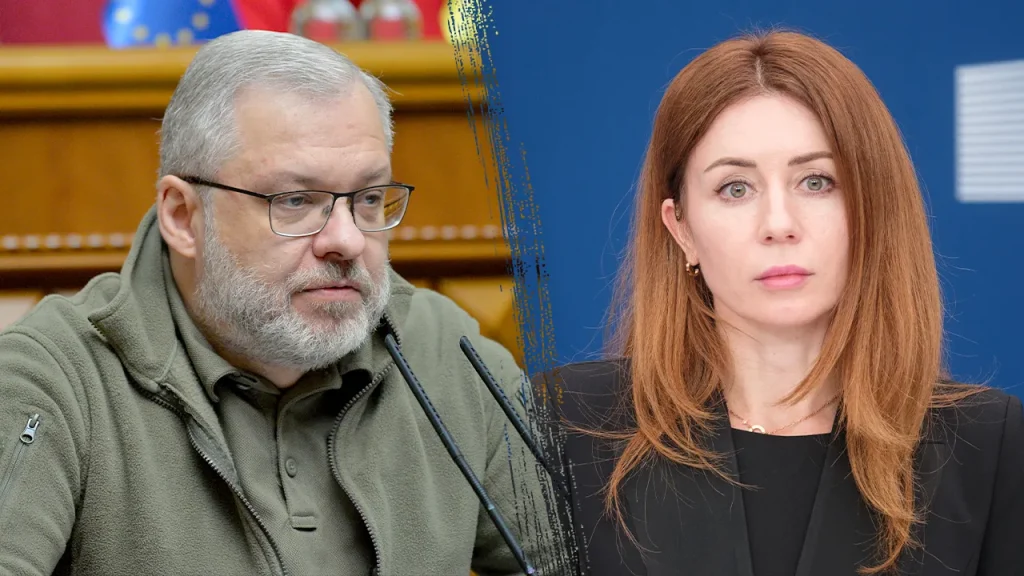Ukrainian Energy Corruption Scandal Leads to High-Profile Resignations
In a significant political upheaval that has sent shockwaves through Ukraine’s government, two senior cabinet members tendered their resignations Wednesday as fallout continues from an alleged $100 million corruption scheme. Justice Minister Herman Halushchenko and Energy Minister Svitlana Grynchuk stepped down amid investigations into kickbacks linked to Energoatom, the state-owned nuclear power company. The scandal comes at a particularly difficult moment for Ukraine, as the country continues to face Russian attacks on its energy infrastructure, leading to widespread power outages that have left citizens struggling through darkness and uncertainty. Prime Minister Yuliia Svyrydenko announced these developments on social media, also noting that several senior Energoatom officials had been suspended as the probe deepens.
The corruption investigation, code-named “Midas,” was conducted over 15 months by Ukraine’s independent anti-corruption agencies – the National Anti-Corruption Bureau (NABU) and the Specialized Anti-Corruption Prosecutor’s Office (SAPO). Their findings revealed what they described as a “large-scale corruption scheme” involving a “high-level criminal organization” that systematically extracted illicit payments from Energoatom’s contractors. According to the investigators, these contractors were coerced into paying kickbacks of 10-15% of contract values to avoid having payments blocked or losing their supplier status. This systematic exploitation of the energy sector took place while ordinary Ukrainians have been enduring increasingly difficult living conditions due to Russia’s targeted attacks on power infrastructure.
The extent of the corruption network appears both sophisticated and far-reaching. Anti-corruption agencies discovered a Kyiv-based “laundry” operation where approximately $100 million was laundered through non-resident companies. Perhaps adding another layer of intrigue to the scandal, the premises used for this operation reportedly belonged to the family of Andrii Derkach, a former Ukrainian lawmaker who is now a Russian senator. The investigation has already led to five detentions, with another seven individuals under suspicion, including a former advisor to the Energy Minister. The government has also moved to impose personal sanctions against Timur Mindich, a former business partner of President Volodymyr Zelenskyy, and businessman Alexander Tsukerman, though their exact roles in the scandal have not been fully clarified.
The timing of this scandal could hardly be worse for Ukraine, both domestically and internationally. As Oleksandr Merezhko, a lawmaker from President Zelenskyy’s party, observed, “Internally this scandal will be used to undermine unity and stability within the country. Externally, our enemies will use it as an argument to stop aid to Ukraine.” The corruption revelations strike at the heart of Ukraine’s narrative as a reforming democracy worthy of Western support and investment. The contrast between ordinary citizens enduring blackouts caused by Russian attacks while officials allegedly profited from energy sector corruption creates a damaging perception that could undermine international goodwill toward Ukraine. “It looks really bad in the eyes of our European and American partners,” Merezhko added. “While Russians destroy our power grid, and people have to endure blackouts, someone at the top was stealing money during the war.”
President Zelenskyy has moved quickly to address the scandal, likely understanding the potential damage to both his administration and Ukraine’s international standing. In a statement posted on social media, he expressed support for the investigations being conducted by Ukraine’s law enforcement and anti-corruption officials. “Right now, it is extremely difficult for everyone in Ukraine – enduring power outages, Russian strikes, and losses. It is absolutely unacceptable that, amid all this, there are also some schemes in the energy sector,” Zelenskyy wrote. His response aims to demonstrate that Ukraine takes corruption seriously, even in wartime, and that no one is above accountability. The president further announced his intention to sign a decree imposing sanctions on two individuals implicated in the NABU case concerning Energoatom, reinforcing his message that “undermining the state means you will be held accountable.”
The corruption scandal highlights the ongoing struggle within Ukraine to reform deeply entrenched systems of corruption while simultaneously fighting for national survival against Russian aggression. This dual battle – against external military threats and internal corruption – represents the complex reality of Ukraine’s situation. For a country that has positioned itself as fighting for democratic values and seeking integration with European institutions, allegations of high-level corruption during wartime are particularly damaging. Yet the fact that Ukraine’s independent anti-corruption bodies have been able to conduct such a significant investigation, leading to ministerial resignations, may also be seen as evidence that the country’s institutional reforms are having an impact. As Ukraine continues its difficult path forward, balancing the immediate demands of war with the long-term imperative of building transparent and accountable governance structures remains a formidable challenge, one that will significantly influence the country’s future prospects for European integration and international support.















